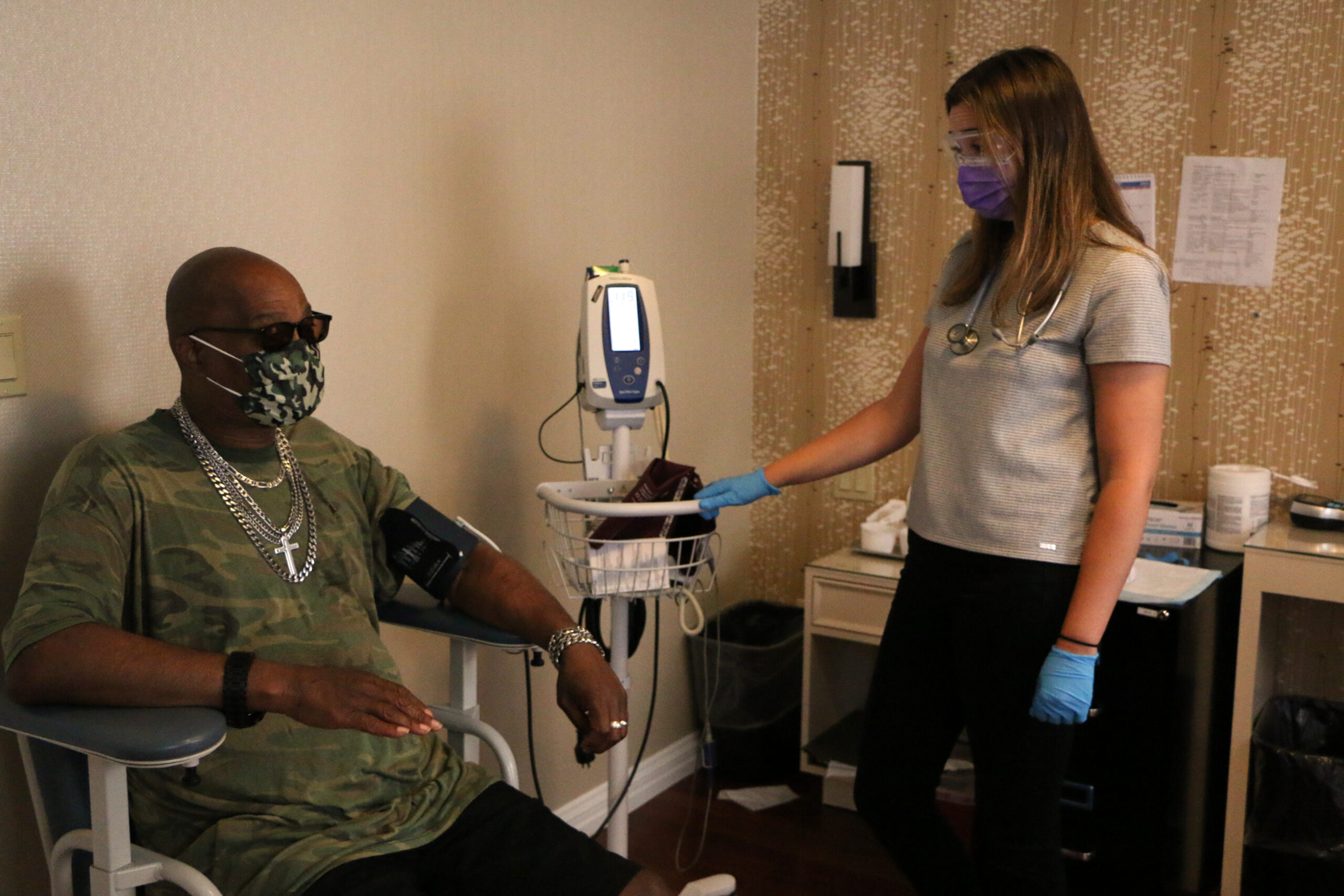Blog

People Who Are Homeless Need Safety Too
September 10, 2020The New York City Department of Homeless Services moved the entire single, adult shelter system to hotels to allow for social distancing during the COVID pandemic. As a nurse practitioner in a congregate shelter, this was a relief to me. In May, our 100 bed shelter for men was relocated from the Bronx to the Belnord Hotel on Manhattan’s Upper West Side, after a terrifying March and April. I was constantly worried that asymptomatic spread was lurking among my patients and at any moment an outbreak could erupt and potentially kill staff, shelter and neighborhood residents.
At the congregate shelter we prepared for the worst, checking oxygen tanks and defibrillators, screening for symptoms, and making all possible social distancing accommodations. We furiously wiped down all surfaces and posted signs and reminders of symptoms and when to seek care. We saved lives, but we also got lucky. We are essential workers and know the importance of interventions and reducing risk, while also recognizing that shared dorms are dangerous in the time of COVID-19.
I’m enormously grateful that my patients are safer now with private rooms and bathrooms in what would be an otherwise empty hotel. Adjusting to this new setting has certainly been challenging for our staff and clients, but I feel lucky to be part of a shared humanity that recognizes each individual’s worth and that everyone is deserving of safety. On the other hand, I’ve been surprised and disappointed at the public outcry and negative media attention directed at our clients.
My patients are like you and me, except they do not have a home, and their struggles are much harder. They are funny and laugh at my jokes. They grant me their trust if I earn it. They tell me to get home safe and ask, “How was your weekend?” on Monday mornings. They hold the elevator. In pre-COVID times, they high-five me when their blood pressure improves. Now, they elbow-bump me. They ask good questions and they worry about COVID-19. They wear masks. They struggle and survive.
As a medical provider, it is part of my job to advocate for the health and safety of my patients. To hunker down at home during a viral pandemic is a privilege that residents of congregate shelter do not have. I have a responsibility to care for people, housed or not, and caring is about more than just prescribing medication. It’s about looking after, protecting, and defending from harm. Right now, a hotel room is the best way to protect my patients, and it is saving their lives.
—
Kathleen Alvarez is a nurse practitioner with the Center for Urban Community Services (CUCS). She provides primary medical care to individuals in shelters and supportive housing sites in Manhattan and the Bronx.
